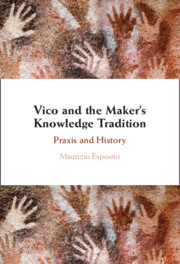Refine search
Actions for selected content:
189 results
Chapter 13 - Some Dialectics of Utopia in China Miéville’s Bas-Lag Trilogy
- from Part IV - Case Studies
-
-
- Book:
- The Cambridge Companion to British Utopian Literature and Culture since 1945
- Print publication:
- 31 December 2025, pp 270-287
-
- Chapter
- Export citation
Chapter 5 - The British Counterculture, Utopia, and Class
- from Part II - Building New Communities
-
-
- Book:
- The Cambridge Companion to British Utopian Literature and Culture since 1945
- Print publication:
- 31 December 2025, pp 97-118
-
- Chapter
- Export citation
Cassirer and Left-Kantianism
-
- Journal:
- Kantian Review , First View
- Published online by Cambridge University Press:
- 11 December 2025, pp. 1-24
-
- Article
-
- You have access
- Open access
- HTML
- Export citation
Chapter 8 - The African Location of Postcolonialism
- from Part II - Theoretical Turn
-
-
- Book:
- African Literature in Transition
- Published online:
- 07 November 2025
- Print publication:
- 20 November 2025, pp 157-170
-
- Chapter
- Export citation
7 - Conclusion
- from Part II - Application
-
- Book:
- The Three Economic Enlightenments
- Published online:
- 04 November 2025
- Print publication:
- 13 November 2025, pp 154-174
-
- Chapter
- Export citation
1 - Genealogies of Anticolonialism
- from Part I - Activists, Intellectuals, and Movements
-
-
- Book:
- Anticolonialism and Social Thought
- Published online:
- 16 September 2025
- Print publication:
- 25 September 2025, pp 25-47
-
- Chapter
- Export citation
Epilogue
- from Part IV - On Method
-
-
- Book:
- Anticolonialism and Social Thought
- Published online:
- 16 September 2025
- Print publication:
- 25 September 2025, pp 303-320
-
- Chapter
- Export citation
1 - Rupturing Patriarchy through the Class Struggle, 1965–1980
-
- Book:
- The Making of Revolutionary Feminism in El Salvador
- Published online:
- 28 October 2025
- Print publication:
- 18 September 2025, pp 52-106
-
- Chapter
- Export citation
3 - Building Feminist Popular Power
-
- Book:
- The Making of Revolutionary Feminism in El Salvador
- Published online:
- 28 October 2025
- Print publication:
- 18 September 2025, pp 148-191
-
- Chapter
- Export citation
Chapter 2 - The Politics of Impossibilism: Germinal
-
- Book:
- Zola's Dream
- Published online:
- 07 August 2025
- Print publication:
- 21 August 2025, pp 70-121
-
- Chapter
- Export citation
Capitalism, imperialism and European Union Law: towards a Marxist approach
-
- Journal:
- European Law Open / Volume 4 / Issue 2 / June 2025
- Published online by Cambridge University Press:
- 20 August 2025, pp. 290-327
-
- Article
-
- You have access
- Open access
- HTML
- Export citation
Underground Revolutionaries: The PAIGC, Leninism, and the Decolonization of Cabo Verde
-
- Journal:
- African Studies Review / Volume 68 / Issue 3 / September 2025
- Published online by Cambridge University Press:
- 15 August 2025, pp. 557-578
-
- Article
-
- You have access
- Open access
- HTML
- Export citation
Chapter 3 - Reception
-
- Book:
- The Cambridge Introduction to Jacques Lacan
- Published online:
- 17 July 2025
- Print publication:
- 31 July 2025, pp 35-47
-
- Chapter
- Export citation
Chapter 4 - Praxis Epistemology I
-
- Book:
- Vico and the Maker's Knowledge Tradition
- Published online:
- 27 June 2025
- Print publication:
- 17 July 2025, pp 118-148
-
- Chapter
- Export citation

Vico and the Maker's Knowledge Tradition
- Praxis and History
-
- Published online:
- 27 June 2025
- Print publication:
- 17 July 2025
Chapter 16 - Proletarian Realism
- from Part III - Forms of Realism
-
-
- Book:
- Realism and the Novel
- Published online:
- 05 June 2025
- Print publication:
- 19 June 2025, pp 230-241
-
- Chapter
- Export citation
6 - The Holocaust and Modernity
-
-
- Book:
- The Cambridge History of the Holocaust
- Published online:
- 16 May 2025
- Print publication:
- 12 June 2025, pp 113-133
-
- Chapter
- Export citation
3 - From “Final Solution” to “Holocaust”: Autobiographical Reflections
-
-
- Book:
- The Cambridge History of the Holocaust
- Published online:
- 16 May 2025
- Print publication:
- 12 June 2025, pp 62-73
-
- Chapter
- Export citation
3 - Latin American Social Medicine, across the Waves
-
-
- Book:
- Medicine on a Larger Scale
- Published online:
- 05 May 2025
- Print publication:
- 22 May 2025, pp 60-80
-
- Chapter
-
- You have access
- Open access
- HTML
- Export citation
‘E pluribus unum......forum?’ A Marxist approach to the EU’s democratic deficit
-
- Journal:
- European Law Open / Volume 4 / Issue 2 / June 2025
- Published online by Cambridge University Press:
- 21 May 2025, pp. 348-368
-
- Article
-
- You have access
- Open access
- HTML
- Export citation
